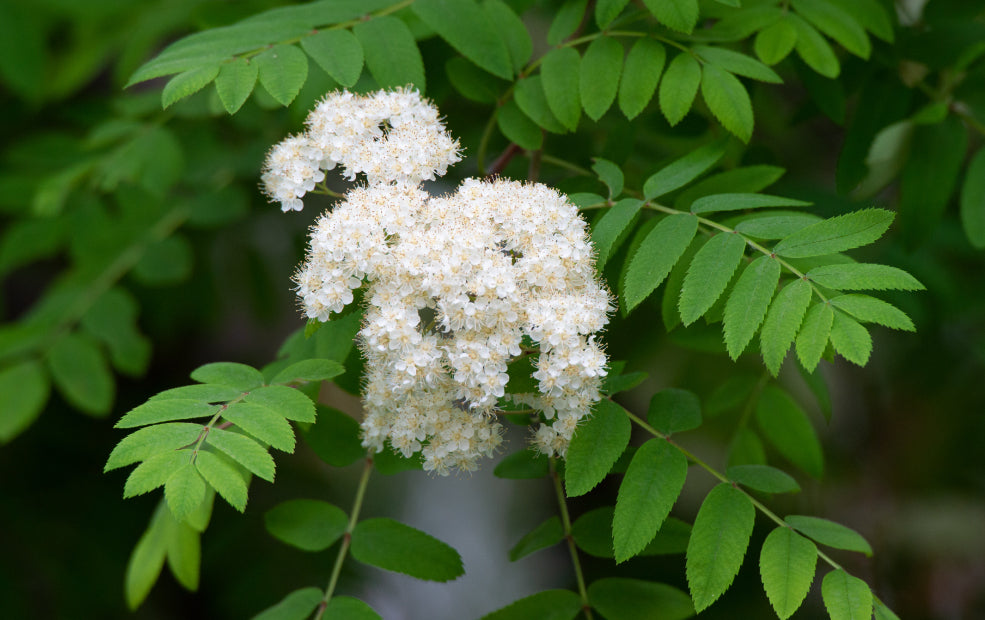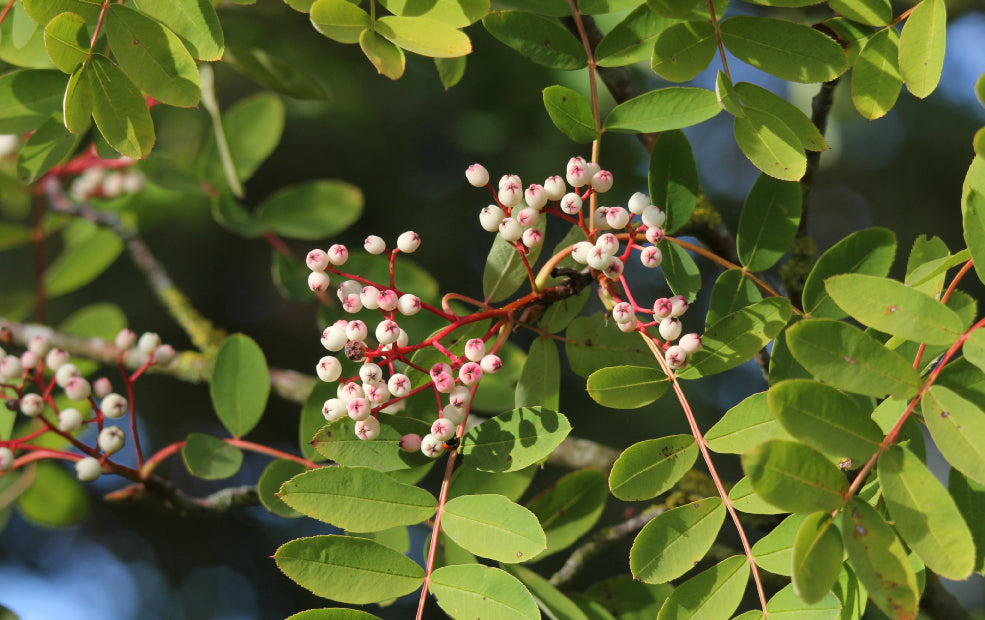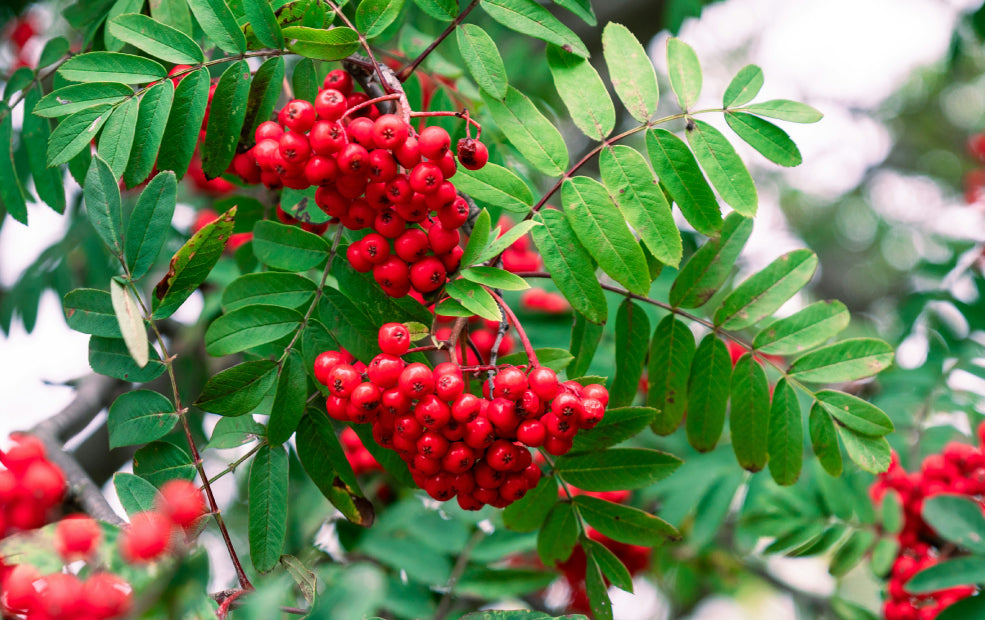Sorbus: A Tree of Grace and Seasonal Splendour.
Sorbus, or Rowan Trees, are among the most enchanting trees you can add to your garden. With their delicate, fern-like leaves and clusters of creamy-white flowers in spring, they bring an air of understated elegance. As the year progresses, these flowers transform into vibrant berries in shades of red, orange, or yellow, creating a spectacular autumn display. Whether standing alone as a focal point or lining a driveway, Sorbus adds timeless beauty to any setting.


















